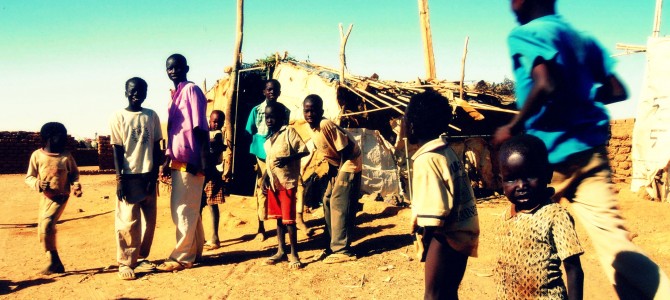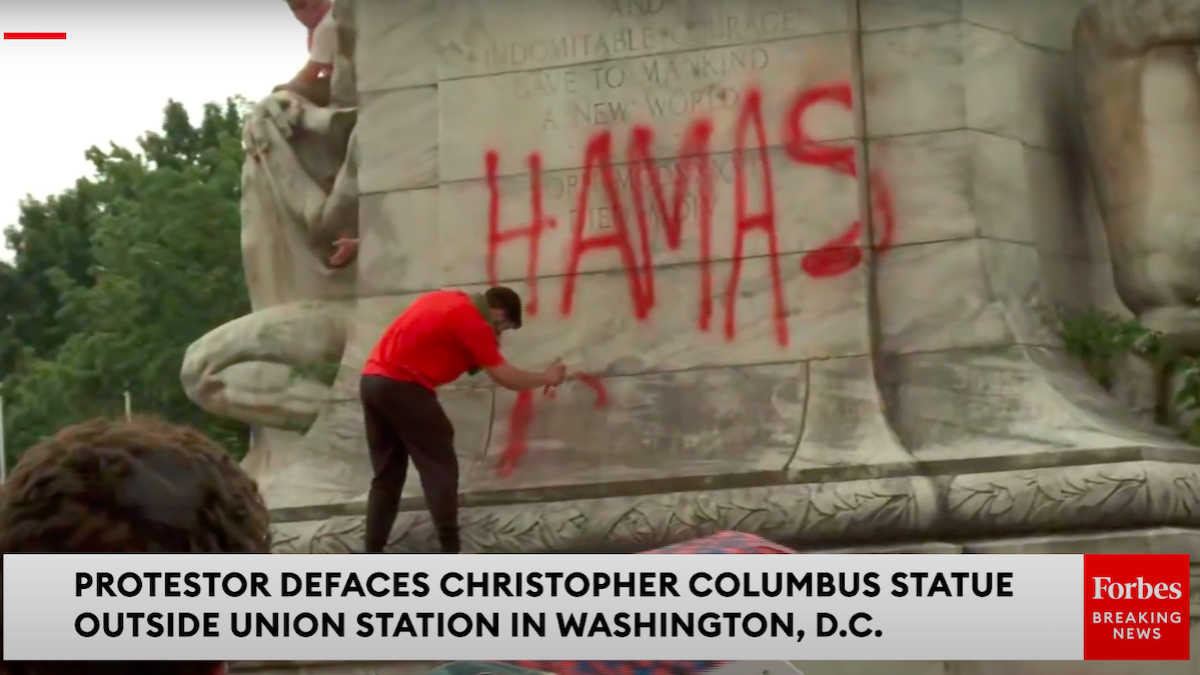
Loneliness magnifies suffering. The best relief from misery is to be with someone you love, someone kind and familiar. But when you can’t escape, your hope will still come from loving memories implanted by that person.
Francis Bok was taken into slavery in Sudan as a young Dinka child. His captivity was filled with brutality, cruelty, and isolation. Francis’s only fuel for survival and escape was the memory of his family, particularly of his father, Bol Buk Dal.
Fatherhood is an extraordinary gift to any child. Gratitude for the gift of fatherhood is a running theme in Bok’s narrative, Escape from Slavery, which he dedicates to many, but “especially for my father, who always told me I would do something important in life.” In the end, he says “I would be nothing without my parents, Bol Buk Dal and Adut Al Akok. In seven years they molded me into the man I am today.” And they sustained him, even from the grave.
Francis’s father was killed by raiders, although Francis didn’t know this as a child. But when he learned of his father’s death years later, he said: “I prayed to God for his soul, and I thanked my father for all he had given me as a child—and as a slave.”
Every Child Has A Father
Americans ought to contemplate this story in order to regain an appreciation of what fathers are meant to do for their children: to guard, to guide, to nurture, and to love.
Unfortunately, Americans seem to have lost the capacity to see the world through the eyes of a child. We forget that for children the world is a mysterious and scary place best explained by parents, familiar flesh-and-blood guides who are knowledgeable and loving.
It’s a sign of cultural dementia that so many Americans are fast forgetting the fact that every single child has a father, regardless of whether or not the father is participating in that child’s life. For a child in need, the lack of a father often leaves a gaping hole which the child senses deeply.
All children know this in their hearts and yearn for this unique relationship that imparts strength, encouragement, hope, and, a sense of wholeness. Whether from birth or from adoption, every child deserves to have a devoted father. Recent attacks on fatherhood—whether based on feminist concerns about “patriarchy” or from policies that suggest or teach fathers are unnecessary—are ultimately acts of neglect and violence towards children.
If the mere memory of a father’s love can sustain and save the life of a child alone and enslaved, we should do everything we can to encourage and build such relationships between all children and their fathers.
Fathering From the Grave
Just imagine being a seven-year-old boy torn from your loving and happy family to slave for murderous folks who treat you as dirt, work you hard, and beat you regularly. You get garbage to eat, and regular threats of death or literal loss of limb. Worst of all, you have no human companionship. Not one kind word. Your job is to herd goats and cattle. Your home is a hovel where you sleep completely alone. For ten solid years.
Francis remembers his mother as beautiful and loving. His father was a strong and cheerful man:
. . . he would tell me important things: ‘I know you’re little but you must listen to what I say. . . You will grow up to be like your father. . . . I want you to be a good man, a good member of the community. I want you to have a good life. . .’ My father had always encouraged me, treated me as special.
But most of all, Francis remembers his father telling him he was strong: “You are muycharko!” which means “You are twelve men!”
The Raid
One day in 1986, Francis proudly and happily went to market in the town of Nyamlell, where he hoped to do a great job selling his mother’s hard-cooked eggs and peanuts. His older sisters supervised, but this was the first time he had been allowed to go with them.
While he was there, armed raiders from the north swarmed in. Little Francis witnessed atrocities as he and his sisters were captured. He wrote:
I looked around the marketplace for help, but all I could see were those bodies of the men, not moving, the blood running from them like water in little rivers going nowhere. . . I had never seen a dead body before. When an old person in our village died they would not let the little kids see the body. Now I saw more dead bodies than I could count – some without heads . . .
A Child’s Introduction to the Banality of Evil
As a militiaman named Giemma took him home, little Francis—traumatized and grief-stricken after the raid—met his captor’s family. Cognitive dissonance set in as his innocent eyes surveyed what Hannah Arendt has referred to as “the banality of evil”:
It had not occurred to me that he might have a wife and children. When I saw the children I suddenly felt better. . . . Happy to see their father, the children ran up and hugged him, just like my sisters and I embraced our parents. . . . [I] noticed that the younger boy was about my age. Maybe he would be my friend. I wiped the sweat and tears and dirt from around my eyes. I wanted to show them what a good boy I was. . . .
The captor’s children then proceeded to dance around Francis, mocking him, chanting insults, laughing, and then beating Francis with sticks while the parents watched.
One of the most poignant and heart-wrenching scenes in Francis’ narrative is when he tells of his confusion at not being loved. After all, his father had loved him so much:
I walked straight up to Giemma, and, for the first time, I talked to my master in his language: ‘Why does no one love me?’ Giemma stared at me as if one of the goats suddenly had spoken to him. ‘Why do you make me sleep with the animals?’
Giemma disappeared for two days, leaving his son to watch Francis. It was an extraordinary disappearance in which Giemma was clearly trying to figure out a reply. When he faced Francis again he said: “I make you sleep with the animals because you are an animal.”
Francis survived the abuse and utter friendlessness the only way he could: By calling on the memory of his father for strength and the faith in God his parents had taught him.
A Good Father is Irreplaceable
At one point, Francis’s captor, Giemma, instructed Francis to address him as “abuya,” which means “father” in Arabic. Such an act would separate Francis from his own father, and serve as another act of violence to his psyche:
I never called Giemma abuya. I already had a father—my wawa, the Dinka word for father—and he loved me. I often thought about my father. . . . By thinking of him, it was as if he were with me, sitting on my blanket, watching Giemma’s goats. When my father was around I could not see anything else. He was seven feet tall, a huge and handsome man. He shined his love on me every day, something that become clearer to me now that I had to get through my days without hearing so much as one kind word.
. . . With my father’s words echoing in my head—‘one day you will do important things’ I looked out at Giemma Abdullah’s goats. I decided that this could not be my future. Giemma did not know that his little goat herder took after his father. . . .
Like my father, I had dreams and ambitions. I wanted to be the important person he believed I could be. I promised myself that I would escape someday. I would come up with a plan. . . . Isolated from my father, all I could think about was the dreams he had for me.
Memories of Love Relieve Isolation
Most difficult for Francis was the enforced isolation. It cultivated a loneliness that would drive most people insane. It was so bad that Francis later noted having a “strange envy” when he later read about American slave culture in which the slaves often worked alongside one another, sang, and prayed together.
The purpose of slaves’ strict isolation in Sudan was not just to demoralize, but to prevent communication that could result in any organized opposition. For example, when Francis saw other young Dinka herders at the watering hole, they were not permitted to speak to each other. Those who did risked having an arm or leg cut off.
Francis reports that his captors never allowed him “to be with even one person I might be able to laugh with.”
But the memory of his father and his father’s words always came to the rescue:
I told myself that I must stay strong. My father would want me to be strong. . . they could not touch my thoughts and dreams. In my mind I was free, and it was there in that freedom that I planned my escape.
‘God is always with you,’ my parents had told me. ‘Even when you are alone, He is with you. . . . When you ask God for what you need, He will help you . . .’ Alone at night sitting in my hut, I remembered that. My father once said to me, ‘Even when you are one, you are two. If you are two, you are three.’
I was really muycharko . . . I began to believe that my father had been right: I was really ‘twelve men.’
Thus armed with his father’s love, Francis would escape into freedom.









